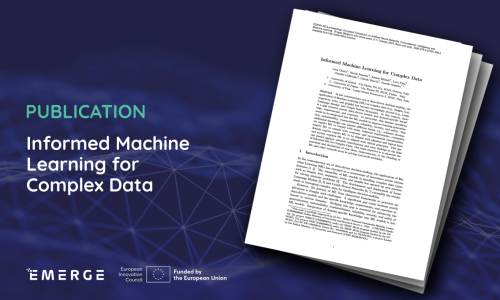11 October 2024


In the contemporary era of data-driven decision-making, the application of Machine Learning (ML) has emerged as a cornerstone of innovation across various domains. The versatility of ML models in handling complex data types such as images, text, sequences, trees, and graphs has opened new avenues for solving intricate problems. The development and deployment of Large Language Models and Graph Neural Networks exemplify the strides made in leveraging complex data for intelligent decision-making.
There is however a gap between purely data-driven models and domain-specific knowledge, requirements, and expertise. In particular, this domain specificity needs to be integrated into the ML models to improve learning generalization, sustainability, trustworthiness, reliability, security, and safety. This additional knowledge can assume different forms, e.g.: software developers require ML to comply with many technical requirements, companies require ML to comply with economic and environmental sustainability, domain experts require ML to be aligned with physical and logical laws, and society requires ML to be aligned with ethical principles.
In this work, EMERGE partners from the University of Pisa gather valuable contributions and early findings in the field of Informed ML for Complex Data with the objective of showcasing the potential and limitations of new ideas, improvements, or the blending of ML and other research areas in solving real-world problems.
Read the paper in the link below.
-
Next Article
Publication: Reservoir Memory Networks -
Previous Article
EMERGE partner awarded a best poster at ANTS 2024 - View All Articles


